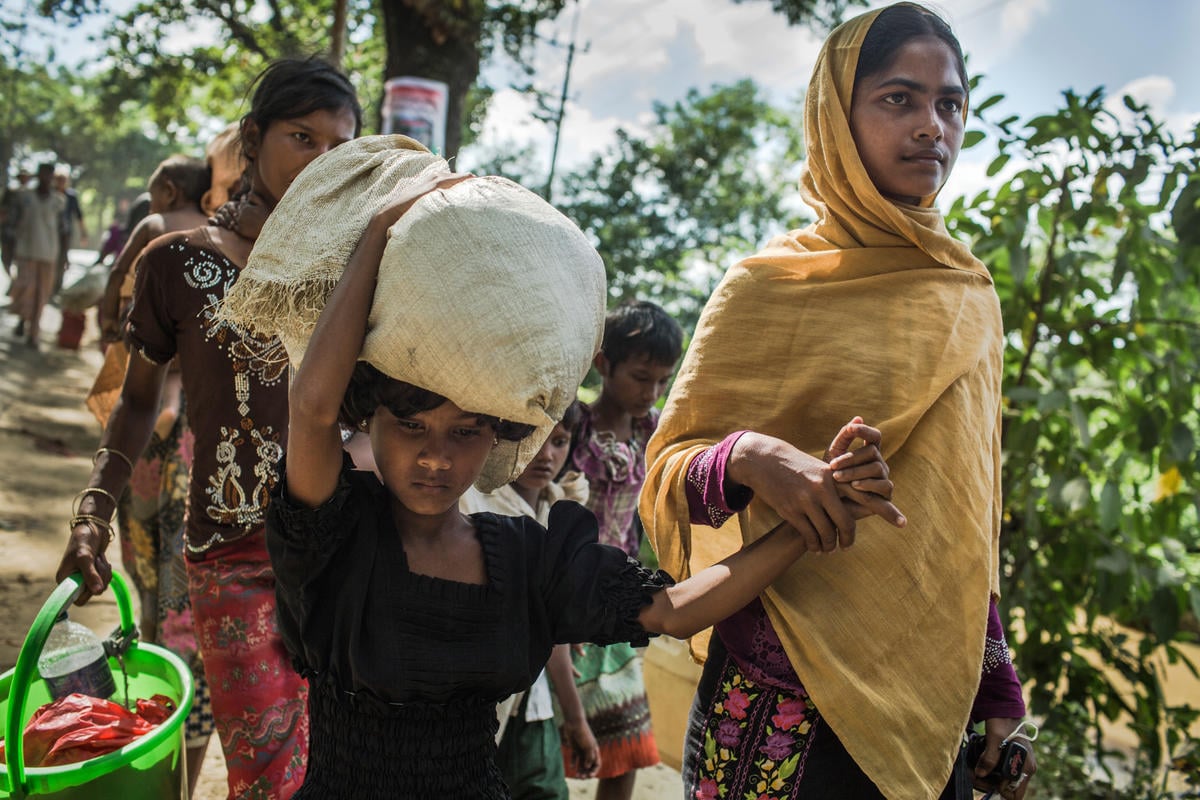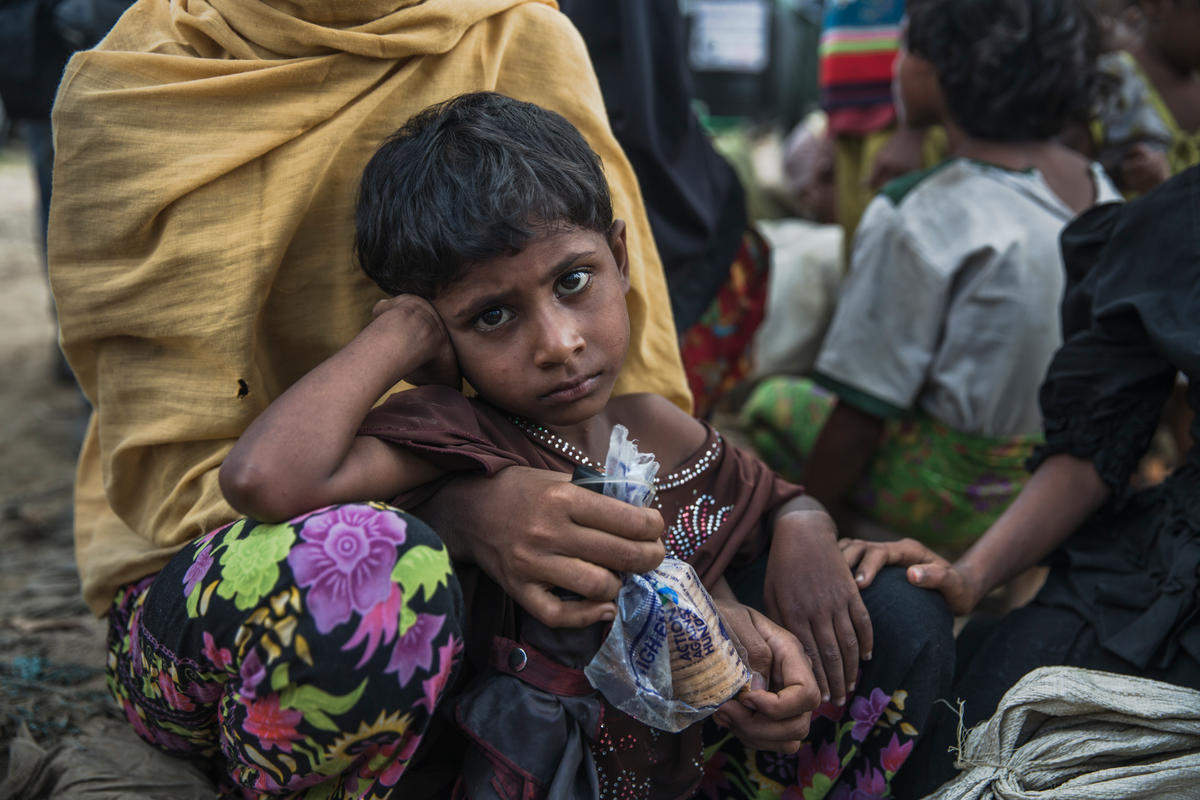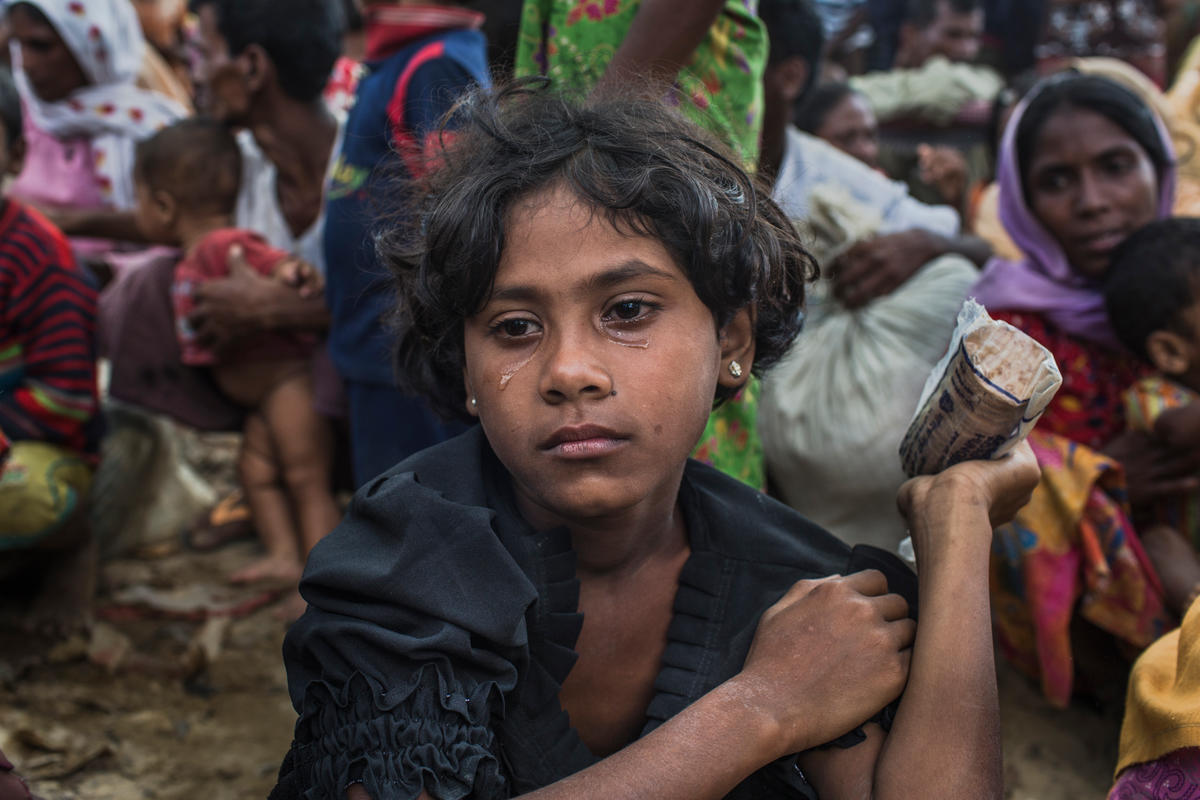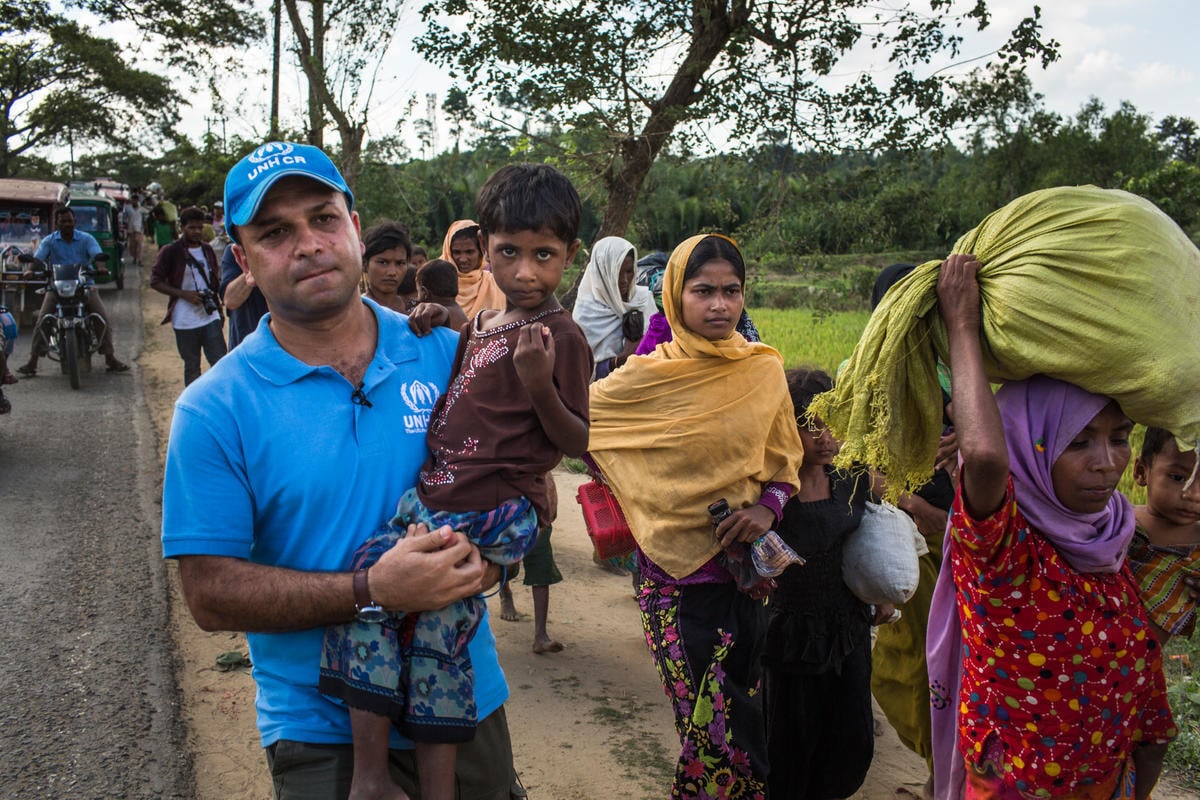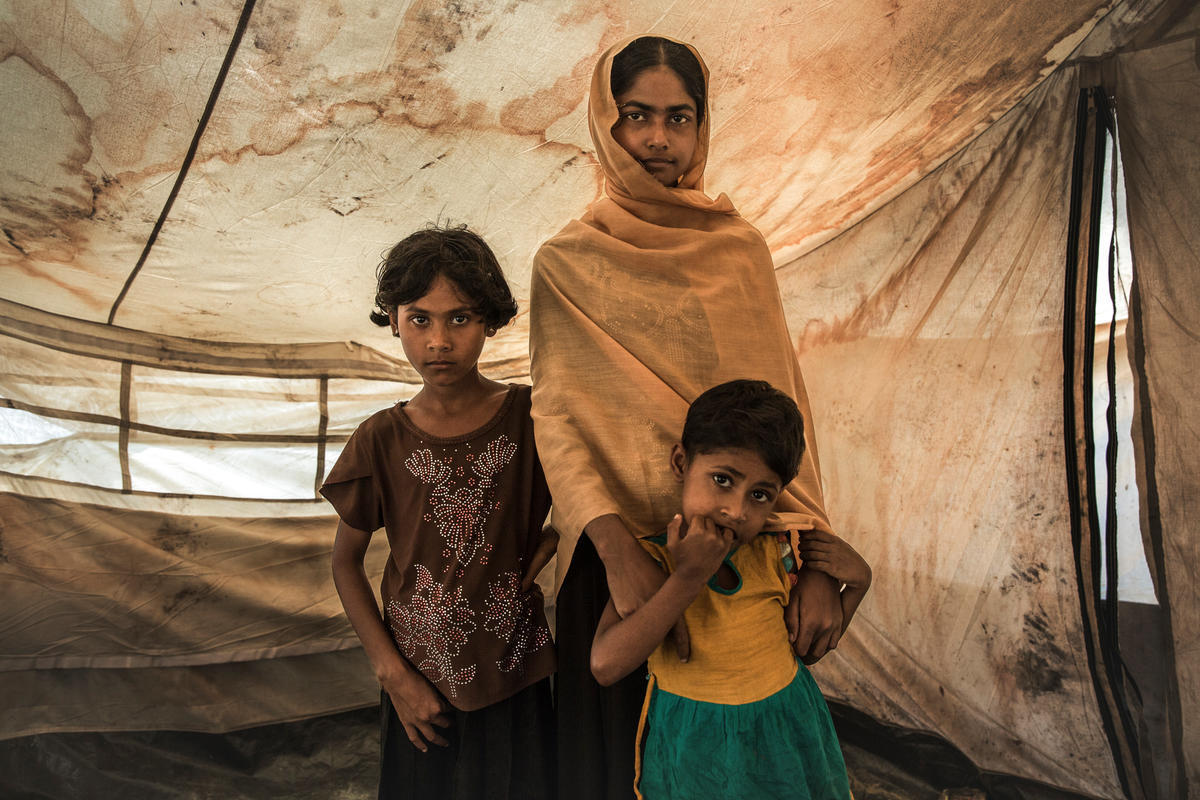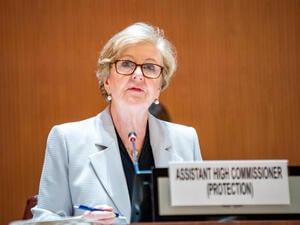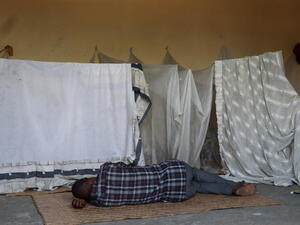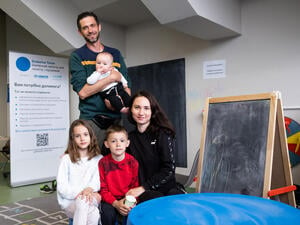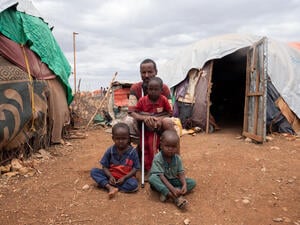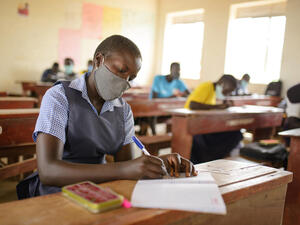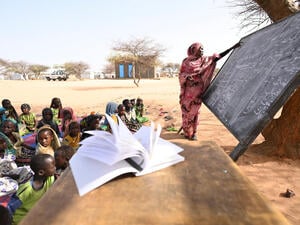Orphaned Rohingya children forced to grow up too fast

Orphaned Rohingya children forced to grow up too fast
At just 18, Rabiaa is newly orphaned and a “mother” of two.
Her parents died when their village in Myanmar’s Buthidaung township was razed a few months ago. In the chaos, she was separated from her four siblings and found her two nieces, aged four and nine, in distress on the side of the road. They sought refuge in a local village for a month before crossing to Bangladesh.
“It was a tough journey,” said Rabiaa, recalling the 25-day walk with nothing but the clothes on their backs. “My nieces were crying the whole time, missing their parents and little brothers.”
They arrived at a transit centre run by UNHCR, a first stop for new arrivals in Bangladesh, and were given hot meals, clean water and new clothes. A week later, they moved to Kutupalong camp where they now live beside their former neighbour from Myanmar.
“Since we all lost our parents, I am now playing the role of a mother and they are like my little children,” said Rabiaa of the two girls. “I will take care of them for the rest of my life, even if it means that I don’t get married. I want to see them well-educated.”
Rabiaa’s predicament is sadly far too common in the refugee camps and settlements of Cox’s Bazar, where some 650,000 refugees have arrived after fleeing violence that erupted in Myanmar in late August.
“Since we all lost our parents, I am now playing the role of a mother.”
The UN Refugee Agency believes that children make up 55 percent of the total refugee population. Thousands have fled without the protection of their family or community and become caregivers to younger siblings or other children overnight. According to the current family counting exercise, some 5,600 families are headed by children under 18 years of age.
Jainab Bibi, 14, is still mourning her mother’s death during the journey to Bangladesh two months ago. “We covered her body with a blanket and left,” she said, crying. “I miss her very much.”
As well as coping with that loss, she also has to care for her eight-year-old brother. Fortunately, they are now living with a former neighbour who was a good friend of their mother’s.
“We never think of children as lonely. But here, I met some of the loneliest children who now have to adopt an adult role taking care of their own siblings,” said Louise Aubin, UNHCR’s senior emergency coordinator in Cox’s Bazar.
UNHCR and partner organizations are identifying families headed by children, as well as children who are alone or unaccompanied, for individual follow-up to assess their situation.
"I met some of the loneliest children who now have to adopt an adult role taking care of their own siblings.”
UNHCR and others involved in child protection are setting up sustainable foster care arrangements within the refugee communities to ensure that these refugee children are safe and properly supported. More child-friendly spaces and education facilities are being established to help ease the pressures on children forced into adult roles.
These roles can be hard to shake off. Aisha has been playing “mum” since she was seven years old. Her parents died of tuberculosis in Myanmar 10 years ago, leaving her to care for three younger siblings. They fled to Bangladesh in October, where Aisha takes care of the shelter while her two brothers and a sister look for work, collect firewood or attend the madrassa, or Islamic school.
See also: 100 days of hope and horror: a timeline of the Rohingya crisis
She frets that she cannot give them everything they need, and still imagines a life in which her parents are still alive – a life where she could marry and worry less about the little ones’ future.
But the daydream wears off as she remembers her responsibilities: “I want to make sure they are well educated. If they get high marks, I will feel like I raised them well.”
Arefullah, 18, is also doing his best to provide for his 16-year-old sister Mahbouba. They lost touch with their parents and four brothers during the violence back home, and do not know if they are alive or dead.
While Arefullah keeps checking in with community leaders on their whereabouts, he is moving ahead with his new life in Bangladesh. The teenager has opened a barber stall in Kutupalong camp: “I get four to five customers a day, making about 160 taka (US$2). It’s enough to buy food for my sister and me.”
Your support is urgently needed to help the children, women and men refugees in Bangladesh. Please give now.

